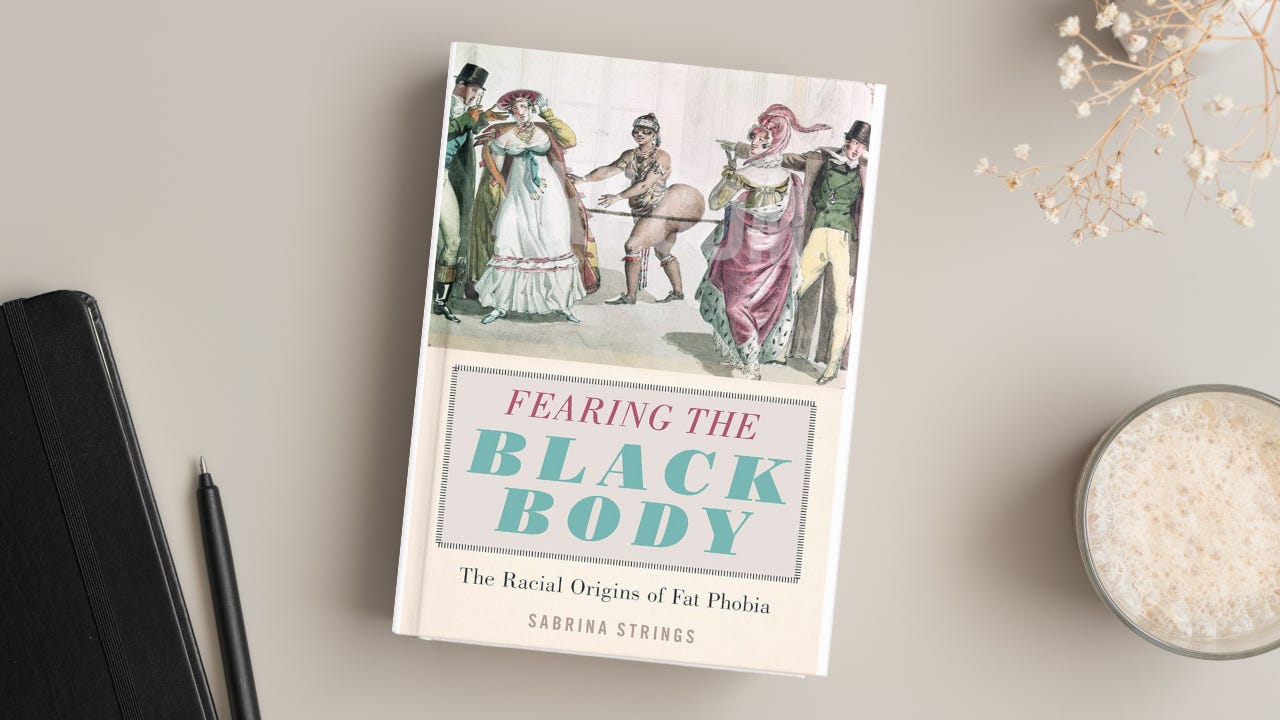The Cost of Inequity is Steep for Black Women
What I learned from Fearing the Black Body
Picture this: I’m sitting on the examination chair, facing my general practitioner. She asks me why I’m here today, and I begin to open up about my health struggles, hoping she’ll have the answer. I can tell by the look on her face that she doesn’t. What follows is the same dismissive advice I’ve always gotten: to avoid alcohol, eat more salads, and lose weight. As a health coach, I felt frustrated by the oversight of my deeper health concerns and the reality that weight loss wouldn’t make these symptoms I would later learn were autoimmune related miraculously go away.
Instead of accepting weight loss as the sole solution, I committed to understanding the root causes of my health challenges. Drawing from my experiences as a health coach, I started on a path toward holistic health. Leaning on my academic background in international development, I looked to the literature to gain a deeper awareness of the disparities faced by Black women in healthcare.
That education and awareness led me to the book Fearing the Black Body.
My transformative moment occurred when I immersed myself in Dr. Sabrina Strings' eye-opening book, "Fearing the Black Body: The Racial Origins of Fatphobia." In my book review, I dive deep into how transformative this book was for me. Before reading Dr. Strings' book, I had no idea about anti-blackness's profound impact on healthcare. After reading this book, it has become crystal clear that our healthcare system was created without Black, Indigenous, or Peoples of Color (BIPOC) in mind. Therefore, the healthcare disparities that exist today are the result of the exclusion (both intentional and unintentional) of BIPOC folks.
While that revelation angered me at first, it also motivated me to invest in learning more about what we can do to eradicate healthcare disparities Black women face. As education has always been the key to my transformation, I began investing in workshops that explored cultural competence, preventative care, social determinants of health, and health equity. The more I learned what I could do as an individual, the more it became evident that educational workshops are the linchpin for healthcare providers to eradicate healthcare disparities and address the unique healthcare needs of Black women. I’ve seen firsthand that ignorance about these disparities perpetuates implicit bias in healthcare, hindering progress rather than contributing to the solution.
It also helped me understand why health inequities disproportionately impact Black women.
According to Medical News Today:
Health inequity refers to avoidable differences in health between different groups of people. (Leonard, 2021)
Health inequities can stem from various social, economic, and environmental factors. Unfortunately, Black women often find themselves at the intersection of multiple forms of discrimination, experiencing heightened vulnerability to these inequities.
The impact of health inequities on Black women is profound and multifaceted. Historical and systemic racism, along with socioeconomic disparities, contribute to limited access to quality healthcare, economic opportunities, and educational resources. These factors intertwine, creating a web of challenges that significantly affect Black women's overall health and well-being.
What we know from the literature is that by addressing these health inequities head-on, we can begin to dismantle the barriers that hinder Black women from receiving the care and support they rightfully deserve. It is through education, awareness, and a commitment to cultural competence that we can work towards a future where health inequities no longer dictate the well-being of Black women. Hence, why I Enhance Black Women’s Health exists.
That’s why my mission at Enhance Black Women's Health is crystal clear.
I’m on a journey to equip healthcare providers with the knowledge they need to deliver equitable care. Empathy and cultural competence aren't just buzzwords; they're the cornerstones of equitable healthcare. By addressing the unique needs of Black women, we're actively reshaping the healthcare landscape and creating a more inclusive and just system.
What can you do next?
So, here's my action item for you. Please share this message with someone you know who can help amplify our mission to eradicate healthcare disparities for Black women. Your support and commitment to sharing this vital message are instrumental in creating a better, more equitable future in healthcare.
Thank you for your time and dedication to this crucial cause.
All the best,
Tomesha Campbell
Founder and Chief Education Officer
Enhance Black Women's Health
Reference
Leonard, J. (2021, May 17). What is health inequity? Medical News Today. https://www.medicalnewstoday.com/articles/health-inequity




